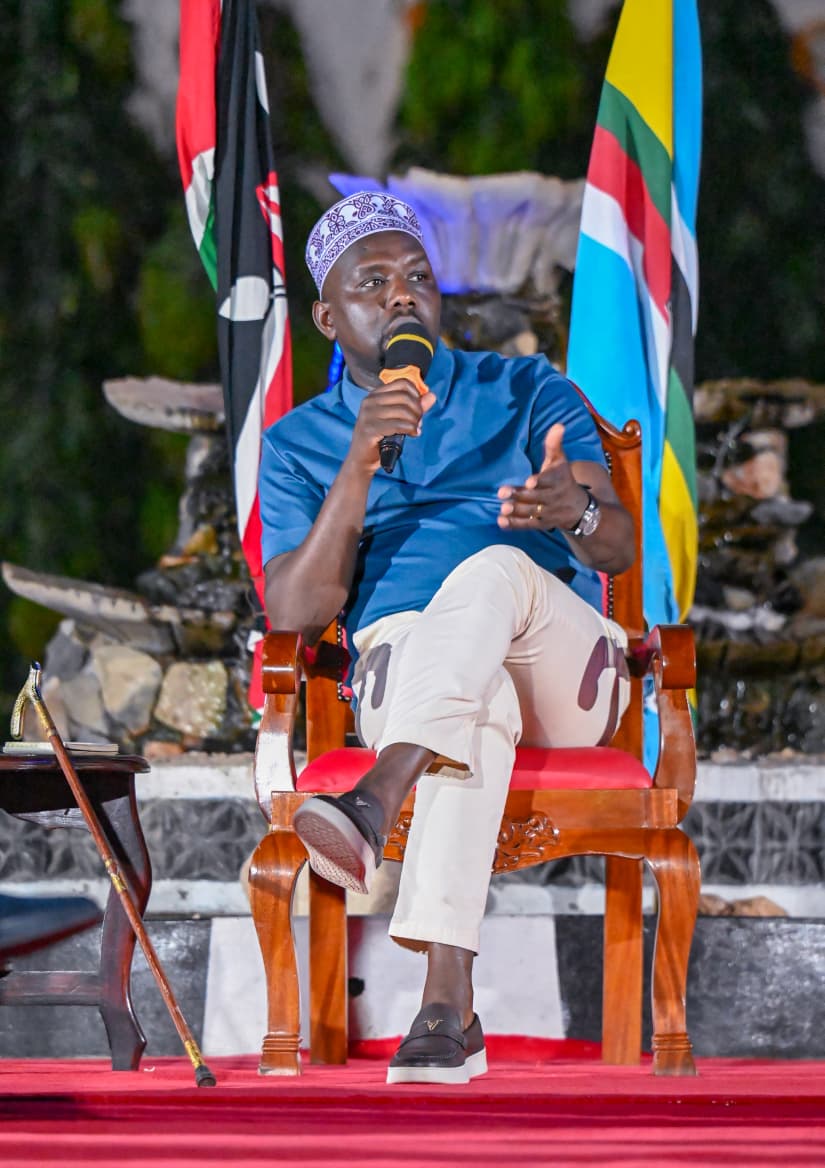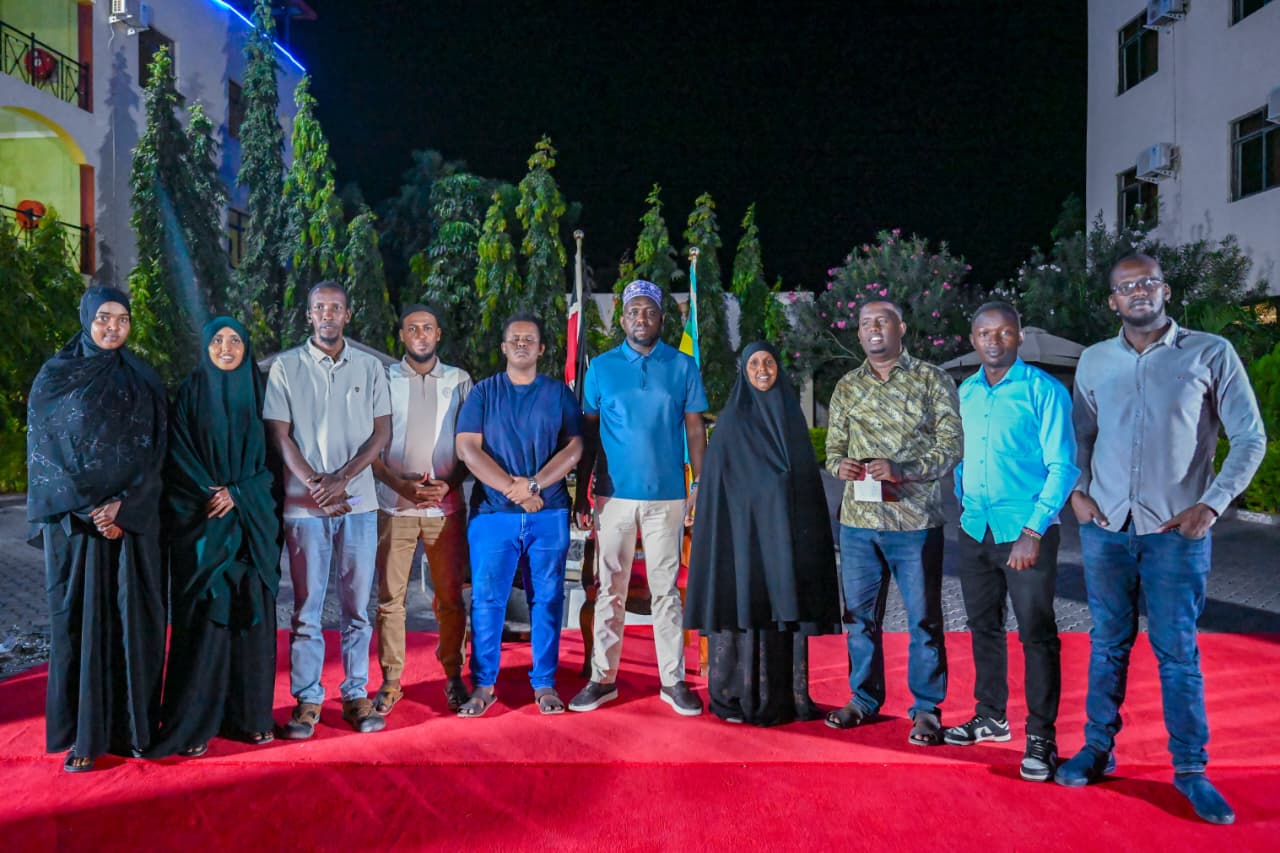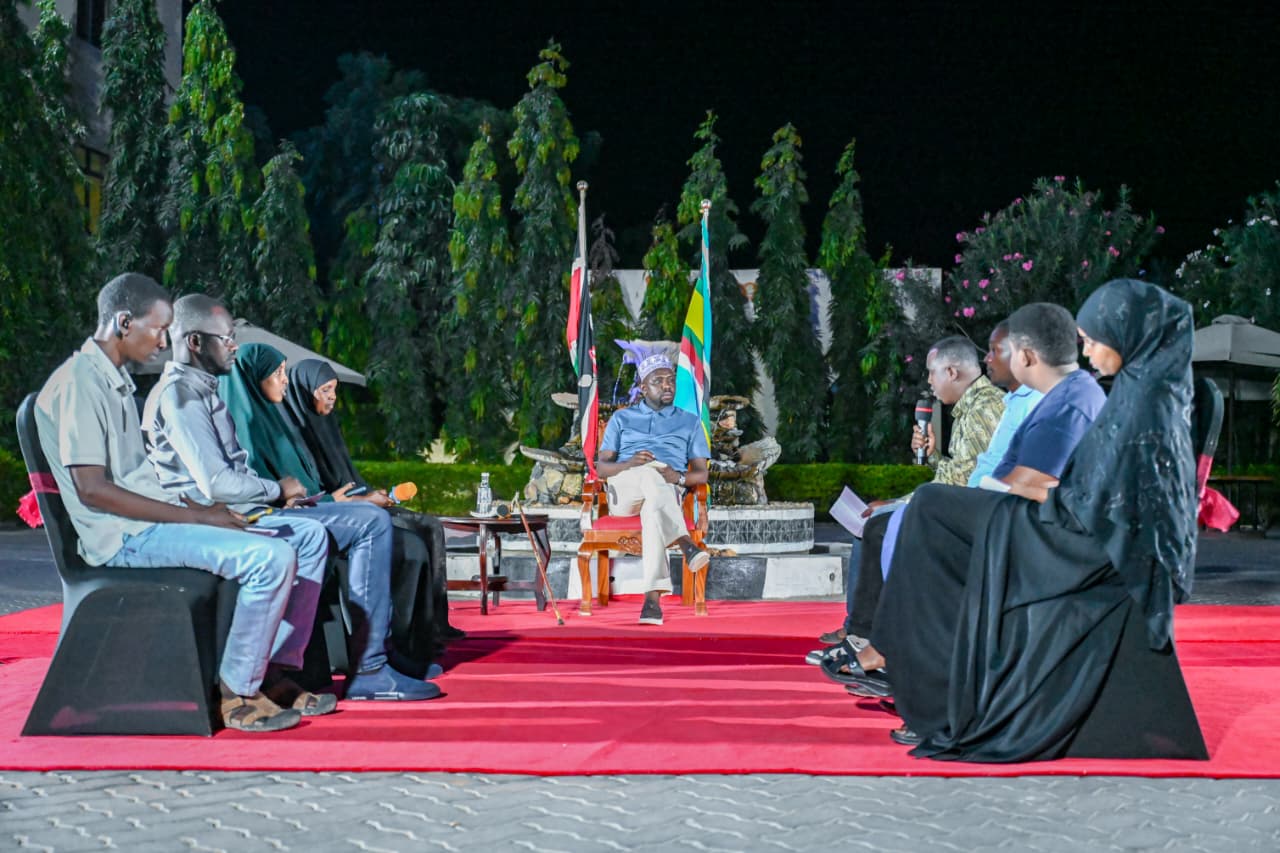
 Interior CS Kipchumba Murkomen responding to questions from
journalists in Wajir./MINA
Interior CS Kipchumba Murkomen responding to questions from
journalists in Wajir./MINA Interior CS Kipchumba Murkomen poses for a group photo with journalists
in Wajir after the interview./MINA
Interior CS Kipchumba Murkomen poses for a group photo with journalists
in Wajir after the interview./MINA Interior CS Kipchumba Murkomen during session with journalists in Wajir./MINA
Interior CS Kipchumba Murkomen during session with journalists in Wajir./MINA
Interior Cabinet Secretary Kipchumba Murkomen has said the government is making major investments in modern technology and equipment to strengthen the fight against al-Shabaab militants.
Speaking in Wajir on Tuesday during an engagement with local journalists, Murkomen said Kenya is upgrading its security capacity through better vehicles, aerial support, drones, and multi-agency coordination.
“There has been continued investment by the government in modern technology, better equipment, better vehicles that can withstand IEDs, reorganisations of the officers to work together in a multi-agency form, equipping them, giving them more aerial support, and investing in more technology, including drones,” he said.
Murkomen, who is in the North Eastern region for the Jukwaa la Usalama tour, said the measures were already improving the country’s ability to neutralise cross-border threats.
He added that police officers were being supported with more vehicles, new police stations, and water points to boost morale.
The region has borne the brunt of militant attacks targeting officers, police stations and critical infrastructure.
Non-locals have also been killed in incidents, with Mandera facing the highest frequency of attacks due to its long border with Somalia. Garissa also remains vulnerable, particularly around the Boni Forest, while Wajir records fewer incidents.
Murkomen linked insecurity to underdevelopment, noting that marginalised counties tend to face greater security challenges.
“It is no accident that the ASAL counties are the ones with the greatest challenges. There cannot be security where there is underdevelopment, and there cannot be development if you don’t secure the place. It is like the chicken and the egg conversation,” he said.
He highlighted infrastructure projects such as the 749-kilometre Isiolo–Modogashe–Wajir–Kotulo–Rhamu–Elwak–Mandera road as key to improving security. Militants have been planting IEDs along roads, mostly targeting security officers.
“When this road is complete, it is going to reduce cases of insecurity by a big margin. Response time will improve, and the planting of IEDs by the enemy along the roads will come to an end,” Murkomen said, adding that the government was providing security for contractors to ensure timely completion.
On the deployment of officers, the CS said the Inspector General was working on a clear policy to address longstanding concerns about officers serving in operational areas for up to 10 years without transfers.
Murkomen also gave an update on the disappearance of Wajir Huduma Centre manager Hussain Abdirahman Mohamed, missing since July 8.
He said investigations were ongoing and appealed to the public to share any information that could help trace him.













